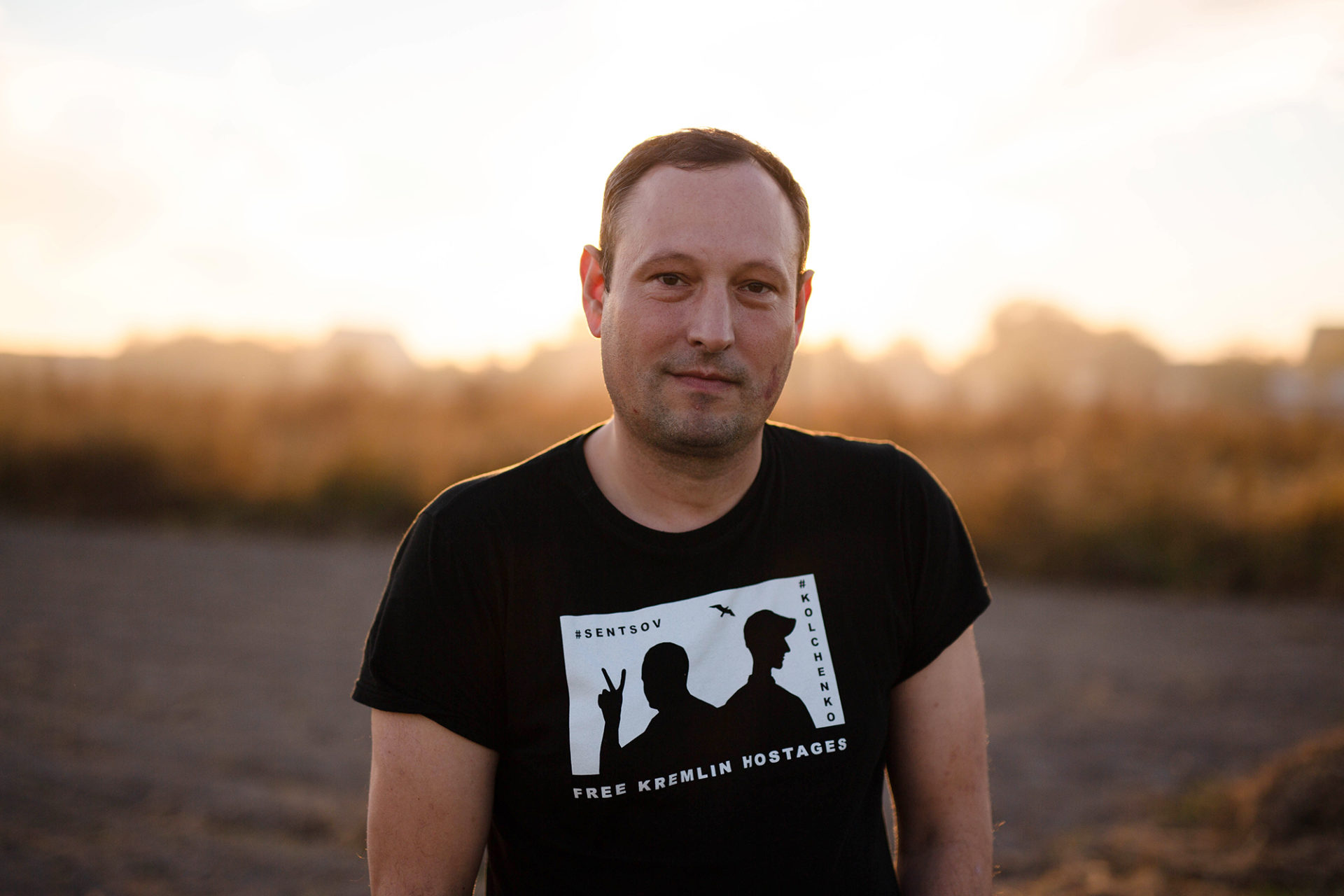Vadym Pyvovarov has been protecting human rights in Ukraine for 15 years. He is a co-founder and executive director of the Association of Ukrainian human rights monitors on Law Enforcement (UMDPL) and Head of the Board of Educational Human Rights in Chernihiv.
Working to improve law enforcement and its perception in society
According to Pyvovarov violations can be driven by the motivation to quickly solve a crime, improve statistics and indicators, in order to gain a bonus or a promotion, as well as corruption and greed. Impunity also plays a role with a low number of cases of law enforcement officers being brought to justice for violations, with solidarity and protection often coming from higher-level officials.
UMDPL addresses both of these factors, applying a wide variety of methods from educational activities, technology and media, to advocacy towards legislative amendments.
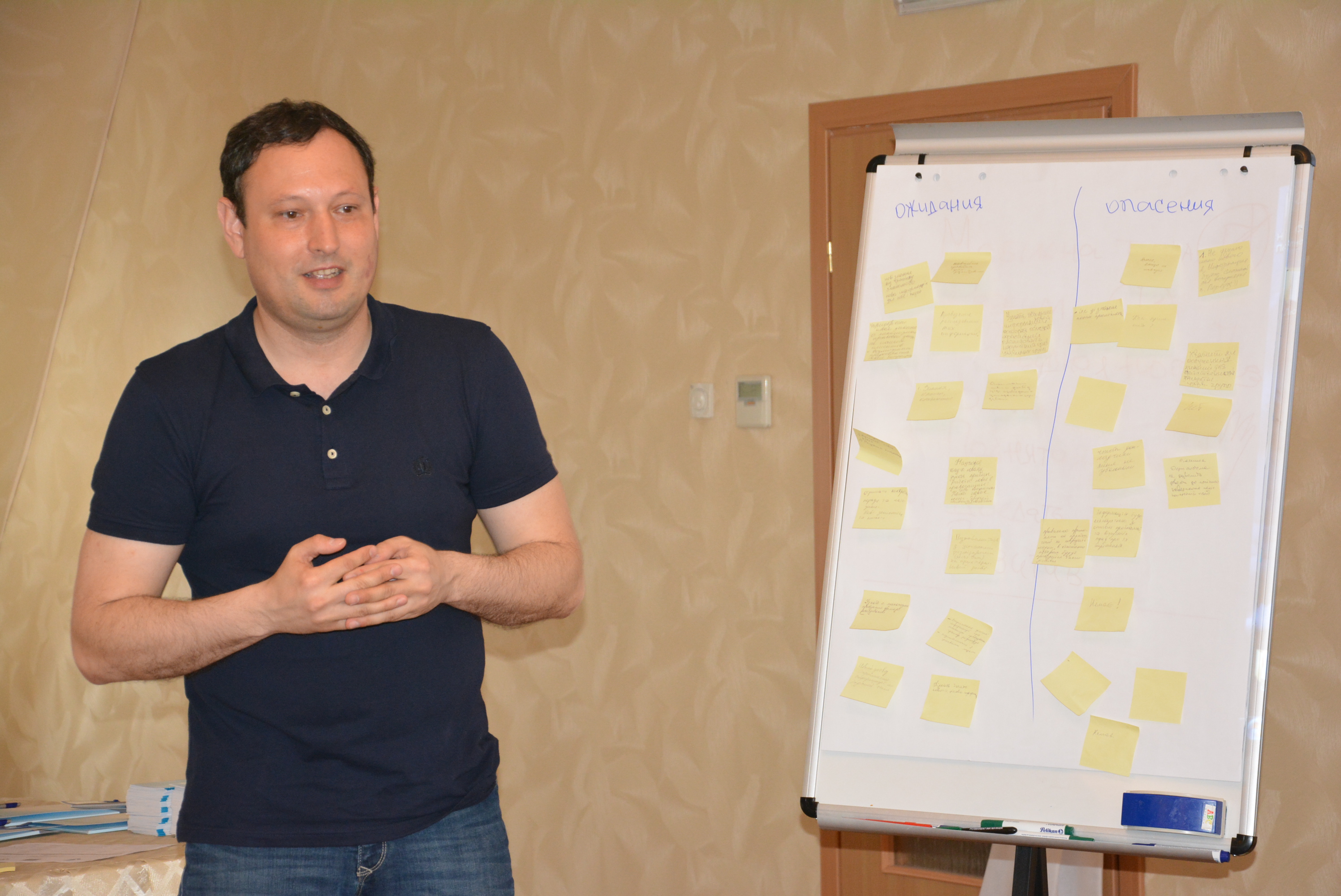
UMDPL participated in the creation of the National Preventive Mechanism in Ukraine, which focuses on monitoring prisons and other detention facilities and monitored police stations and patrols. Experts from the organisation also helped establish the Ombudsman’s office and were the first to launch Ukraine-wide monitoring campaigns.
“We have gained invaluable experience within the law enforcement and we are ready to share it with as many people as possible – anybody who wants to learn.”
UMDPL offers education to both law enforcement officers themselves, who are taught by experts on how to respect human rights, and the broader public, who are taught to understand their rights when interacting with law enforcement.

Police under control is available for download on iOS and android. The organisation is also no stranger to technology and innovation. Over 100 000 people have downloaded “Police under control”, a smartphone app that was developed to assist Ukrainians with their interactions with law enforcement. If a person is summoned to a police department or is detained, the app will outline what rights they have and how to behave with the police in this situation. “We have received requests from the Ministry of Internal Affairs and the Ukrainian National Police for permission to place hyperlinks to the app on their websites.”
UMDPL endeavours to create tools like these to teach the public about human rights. An informed public is better equipped to handle violations, making it harder for impunity to thrive.
https://www.youtube.com/watch?v=Z42QlCYLN9Y
For the youngest residents of Ukraine, UMDPL created a cartoon series, “You and Police,” broadcast throughout the entire country. The cartoons present real-life situations where children and teenagers may encounter and interact with law enforcement. They explain what to do and what not to do in these situations, as well as outlining their rights according to Ukrainian legislation. The cartoons were well-received and widely publicised throughout the country including on local and regional television.
Pyvovarov and his organisation have achieved a lot in their years of activity, but Pyvovarov himself was not always a human rights defender.
From engineer to human rights defender through Buddhism
An important thing for me was realizing that I don’t need to just have a job, I need a job that is aimed at the support and protection of other people.
“I guess I was probably pushed towards defending human rights after I started practising Buddhism.” Prior to life as a human rights defender, Vadym Pyvovarov worked as a construction engineer. In 2002 he began practising the religion that had held his interest since his early childhood. He credits this with changing his outlook on life and the world, and with invigorating him with a new purpose in his life for years ahead.
Two years later, in 2004, he took his first steps in following this new path and began to work for the Ukrainian Helsinki Human Rights Union, which was at the time a very new organisation. In 2008 the Ukrainian Ministry of Internal Affairs (MIA) created a Human Rights Department at the Minister’s Office, Pyvovarov successfully applied for a position, and from there continued his human rights work. Unfortunately, the Department was closed by the new Minister of Internal Affairs in 2010 after having only operated for two years.
During the Department’s brief existence, its team introduced new methods of monitoring the internal affairs agencies, such as mobile monitoring groups consisting of police officers and civic activists. They monitored the detainees’ rights in district police stations and temporary detention facilities. The team also set up community councils at the regional police departments.
“Those were crazy times with the workload and dedication of 1000%.”
Following the closure of the Department, and recognising the potential of the team, their experience and resources, Pyvovarov and his colleagues founded a new human rights organisation — Association of Ukrainian human rights monitors on Law Enforcement (UMDPL) in 2010. Pyvovarov has headed the organisation ever since.
It is particularly important when working with law enforcement: if you confuse terminology and are out of your league, you will not be taken seriously. You have to know the difference between a temporary detention facility and pre-trial detention centre, even though both of them are detention facilities.
During his years in the Ukrainian Helsinki Human Rights Union, Vadym Pyvovarov realised that he needed to know more about his new field and in 2007 he entered the Advanced International Human Rights Course in Warsaw, Poland, a leading human rights education programme which has been run by Warsaw-based Helsinki Foundation for Human Rights since 2002. During the course, Pyvovarov met a lot of his future colleagues and friends from human rights organisations in other countries in the region.
International cooperation
It is impossible to correct all the wrongs of the law enforcement system only through the efforts of one country’s civil society.
UMDPL actively collaborates with colleagues from other countries. While many of these colleagues are based in the region, there is also contact with colleagues from Western countries. This collaboration is particularly important for UMDPL in the form of exchanging experiences and learning about the work of human rights defenders in various political and economic contexts.
“We should pay attention to common tendencies, both positive and negative. Particularly, negative. The authorities often try to marginalise the human rights movement and turn on a whole variety of mechanisms, often illegal, to put pressure on activists. Therefore, united actions in cases of such opression and persecutions are very important.”
According to Pyvovarov, a dangerous common tendency is the appearance of vigilantes — paramilitary groups used for assaulting activists or defending unlawful actions like illegal real estate development. One such example cited Pyvovarov are the “titushki”, a group that appeared during Euromaidan and played a negative role in the events of that period. He has noted similar tendencies in Kazakhstan and Russia as well. “Such groups are often created under the passive eye of the police.”
Lessons from Euromaidan
There was just no time for any other activities, as law enforcement played a critically negative role during that period.
During Euromaidan, UMDPL, just like many other Ukrainian NGOs had to shift its focus and the nature of its work to promptly react to human rights violations committed by law enforcement.
The dispersal of students by special police troops brought thousands of people to the streets demanding that the Minister of Internal Affairs step down and that those responsible in the dispersal be brought to justice. “The authorities did not only refuse to satisfy the demands but started escalating the situation – their answer coming in the form of the unquestioningly obedient law enforcement.”
“Euromaidan brought some positive changes to law enforcement, but there are also negative aspects.”
The situation improved in the field of public services: there was a successful reform of service centres, which resulted in a simplified procedure of issuing driving licenses, everything is computer-aided and is done promptly and without bribes, a widespread phenomenon in previous years.
The State Automobile Inspectorate was closed, a body marred by corruption widely-known for the extortion of bribes from drivers. “I am a driver myself and in the past couple of years have not once been stopped by police without a reason, which happened all too often before.” Also successful was the division of functions between the Ministry of Internal Affairs and the Ukrainian National Police.
Human rights defenders also hoped for the success of an announced reform of the old Soviet militia into a new democratic police force. “A team of reformers from Georgia was invited — they had successfully reformed the police in their country. However, unfortunately, the new Ministry of Internal Affairs leadership made sure that it doesn’t happen. A partial reform of the patrol service was implemented, but it was not much more than a facelift, without the capital repairs inside. Over 95% of policemen were reconfirmed in their posts, which successfully cancels out any reform endeavours. The problem of impunity is still in place.”
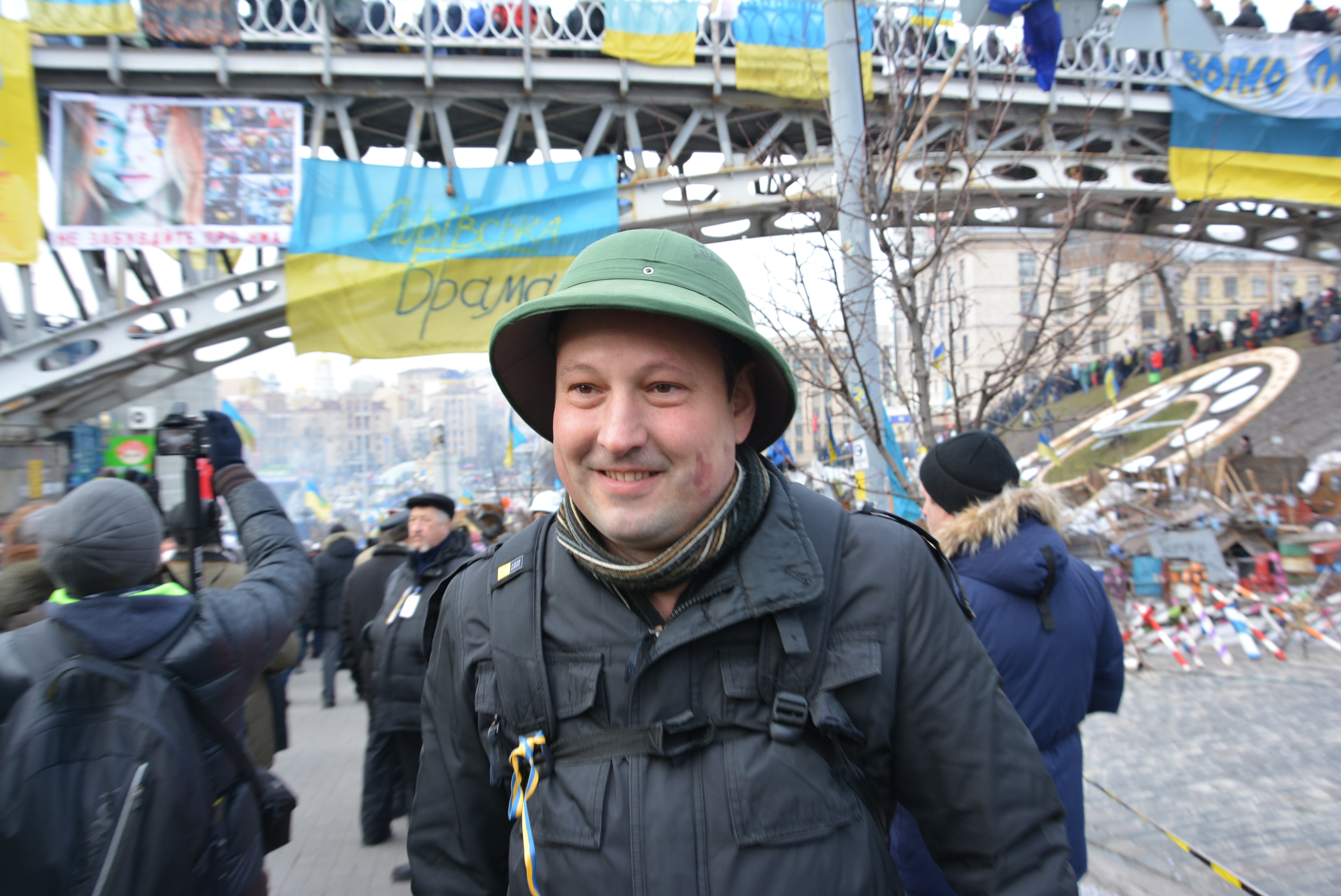
There are also positive changes in the interaction between law enforcement and civil society in Ukraine.
Collaboration includes the introduction of custody records during detention and placement in temporary detention units. An electronic police report is being developed, which will minimize the violations of detainees’ human rights – the centre for legal aid will be immediately informed about the detention, the date of the detention and all relocations will be recorded and so on.
“School police officer”, a pilot program aiming at securing a safe educational environment and prevention of juvenile delinquency is under development. Cooperation on combatting domestic violence and trafficking in human beings is growing.
“However, in most cases, this is all at the level of the centre, at the regional level this cooperation is still difficult. It may be said that cooperation today is mostly taking place in small projects and is ad hoc. One of the main problems is low cooperation with criminal investigative departments, e.g. in investigating attacks on activists. The police force remains a very centralised system, and therefore, if the leadership is not interested in cooperation, it won’t be happening at the regional level.”
Law enforcement in Ukraine’s neighbours
“Our civil society is not so afraid of law enforcement as, for instance, in Russia, Belarus or Kazakhstan.
This level of cooperation between civil society and law enforcement is unavailable in some of Ukraine’s regional neighbours. Vadym Pyvovarov recalls a story that happens to him and his colleagues in Belarus, in May 2011 — at the height of large-scale repressions against the country’s political opposition and civil society, which followed the 2010 presidential election.
“My colleagues and I came to Minsk to read lectures and share our experience in the field of reforming law enforcement and developing models of independent civic control of their work. During the first presentation, plainclothes men and a policeman in uniform burst into the premises, and without introducing themselves or explaining the reasons, asked all of us to come with them.” The human rights defenders present refused to comply, but with the help of more plainclothes men who arrived as reinforcement, they were taken to a minibus and then to a police station, where they were kept in a basement for several hours. After that, they were released without any explanation. Not only were three Ukrainians detained that time, but also their colleagues from Poland and Russia.
“The Belarusian authorities are doing this to put pressure on human rights defenders. To ensure that there is no desire to come and take part in joint events with Belarusian human rights defenders.”
Vadym Pyvovarov believes this to be one of the main differences between the Ukrainian law enforcement system and those of other countries in the regions: “Our civil society is not so afraid of law enforcement as, for instance, in Russia, Belarus or Kazakhstan, and besides our police got a sort of vaccination against human rights violations after Euromaidan.”
While there are differences, Pyvovarov notes many similarities among the law enforcement systems across the countries in the region – chief among them is the “common heritage of the repressive Soviet machine, oriented at the suppression of any civic activity with the help of law enforcement. Most modern leaders (senior ranks) received their education and first experience in this atmosphere.”
There is also a rigid centralisation of the system and quantity-based system of evaluation of one’s work, when not only the percentage of closed cases is important, but also the number of police charge sheets issued and so on. This makes police officers financially dependent on their superiors, and “afraid to go against the leadership’s orders more than they are to go against the law.”
In many countries of the former Soviet Union, there are still a lot of human rights violations in law enforcement, “mainly, on the part of field officers, who prefer to work in the same old way towards the confession rather than collect other evidence.”
Documenting human rights violations during the conflict in South-East Ukraine
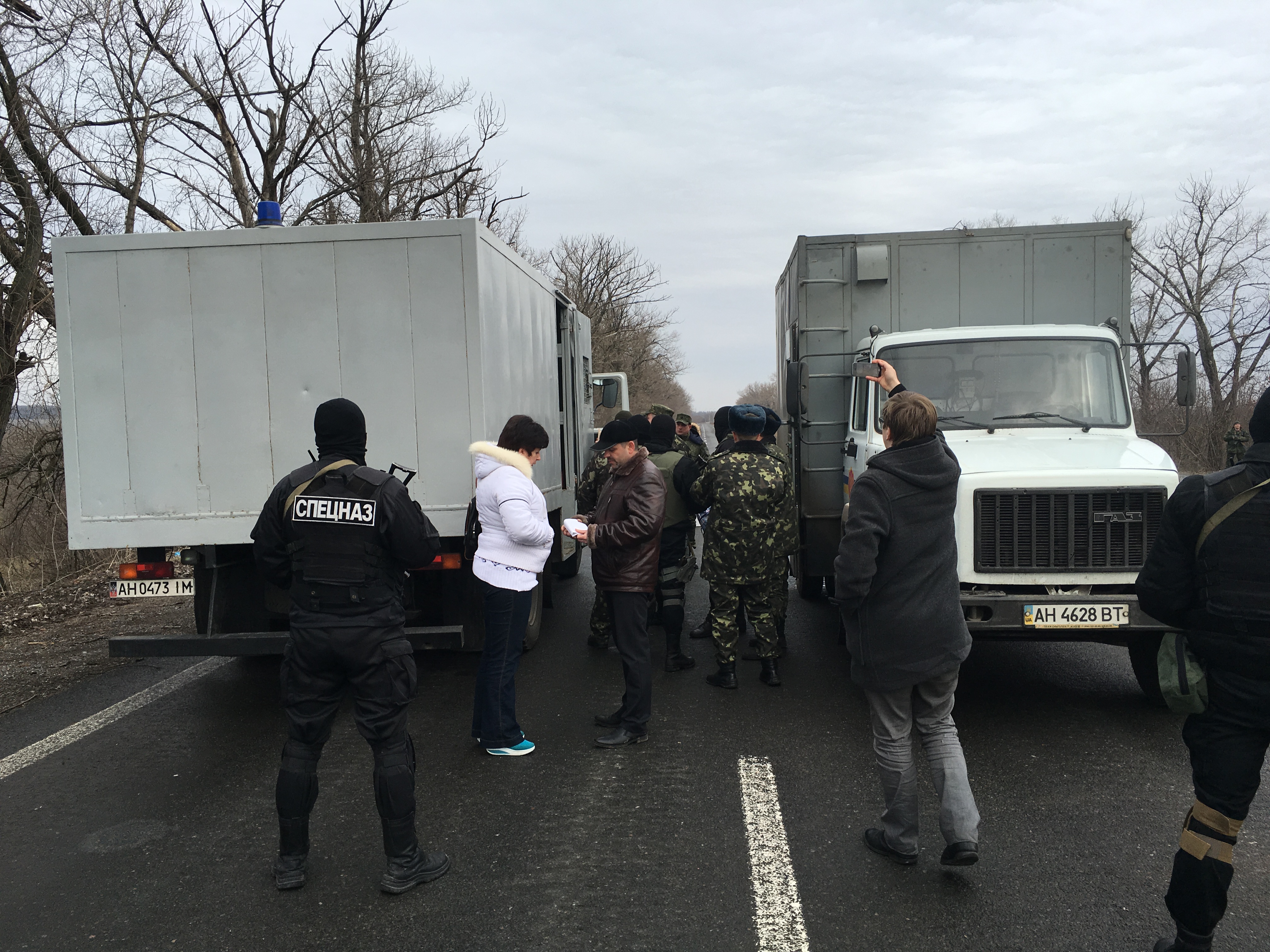
From the very beginning of the conflict in the Donbass, UMDPL started receiving information about human rights violations on the part of the so-called Donetsk People’s Republic and Luhansk People’s Republic. During the past five years, hundreds of people went through illegal detention facilities; however, their exact number is impossible to determine yet. Vadym Pyvovarov notes: “However, the representatives of the Ukrainian authorities were also justly accused of the existence of unlawful SBU [State Security Service of Ukraine] prisons, and we are obliged to talk about it and draw attention as well.”
“According to the reports and statements by respected international human rights organisations — Human Rights Watch and Amnesty International — at least 19 people were held in a secret SBU prison in Kharkiv.
“I participated in the monitoring visits organised by the Ukrainian Ombudsperson to verify the reported facts. During the visits, we did not find detained people, but the mere existence of premises and how they were equipped raised suspicions of their possible use for the unlawful detention of people. This is what we reported to the leadership of SBU and Prosecutor General’s Office, which exercises supervision of the observance of human rights in prisons. We have not received any information about their use recently.”
Looking ahead
I am an optimist in life and hope for the best. Therefore, I hope that in our country the situation with human rights will be getting better.
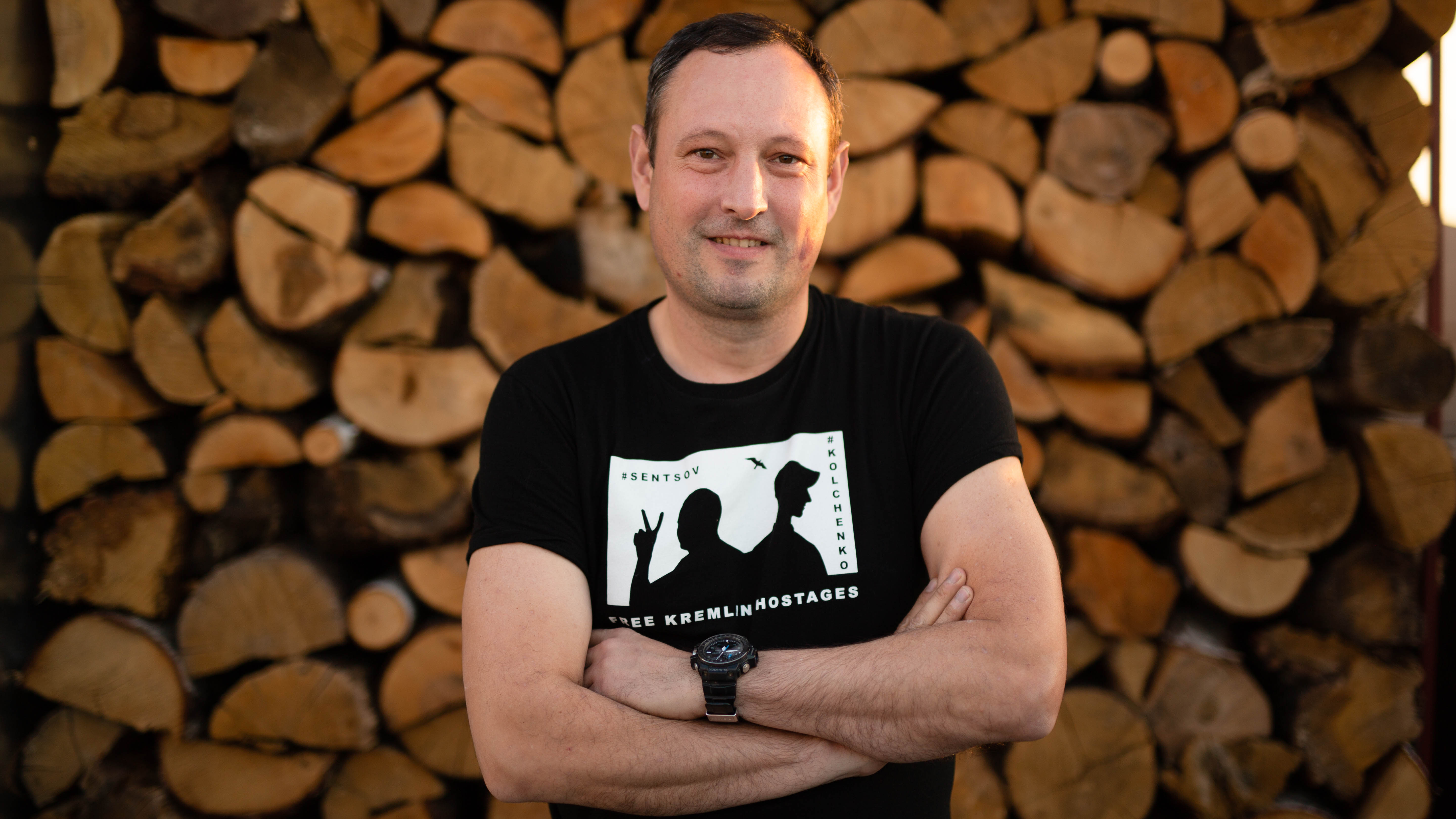
According to Vadym Pyvovarov, the main objective for his organisation is the protection and promotion of the first-generation rights — fundamental rights and freedoms. “Without the respect for these rights a healthy development of the society is impossible,” — Vadym Pyvovarov says.
UMDPL has ambitious plans in this direction, but they are still far from achieving their dream — respect for fundamental rights and freedoms. “As the Ukrainian classic, Taras Shevchenko, said: ‘Fight and you will prevail!’ So, we will fight.”
Top photo: humanrightshouse.org


